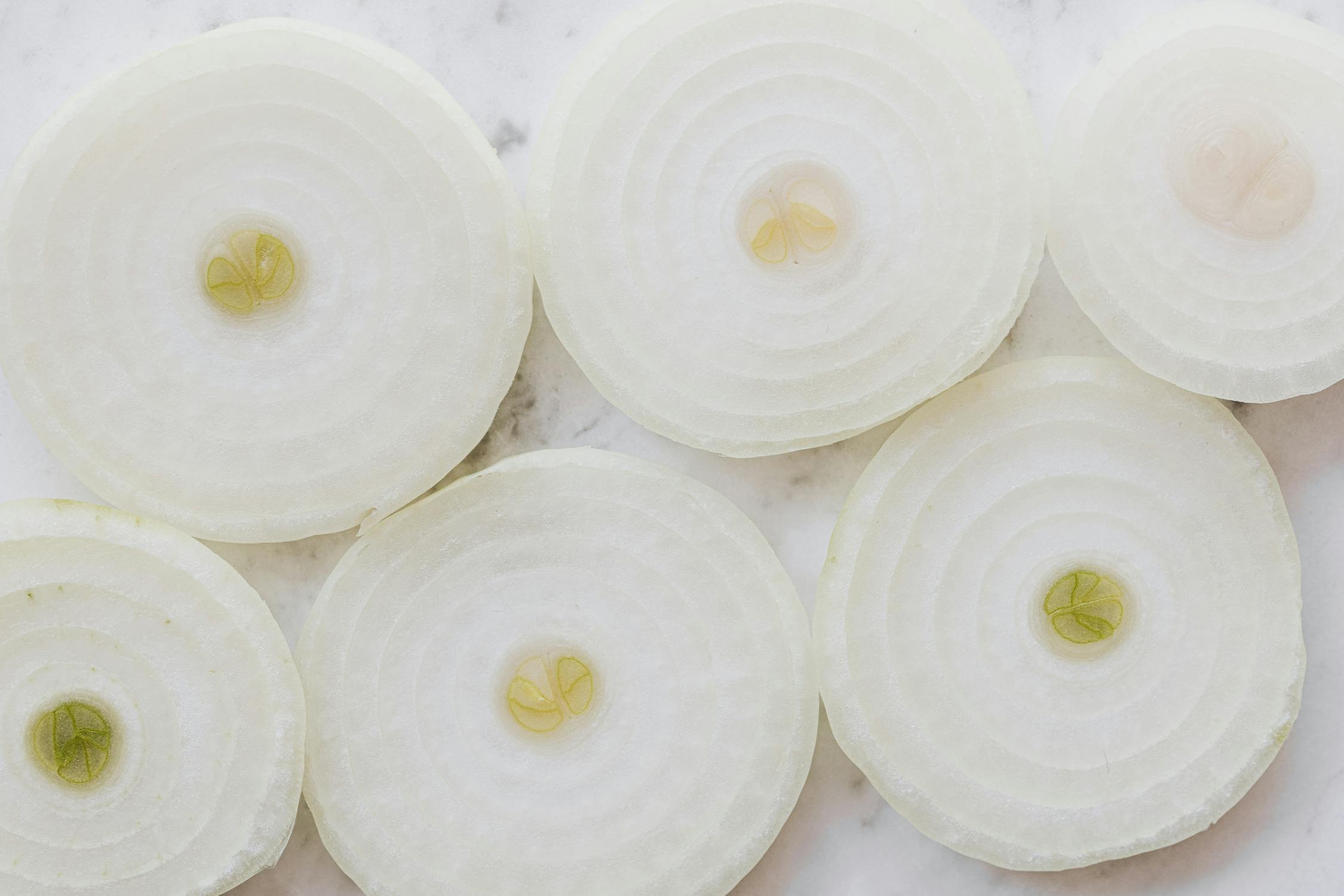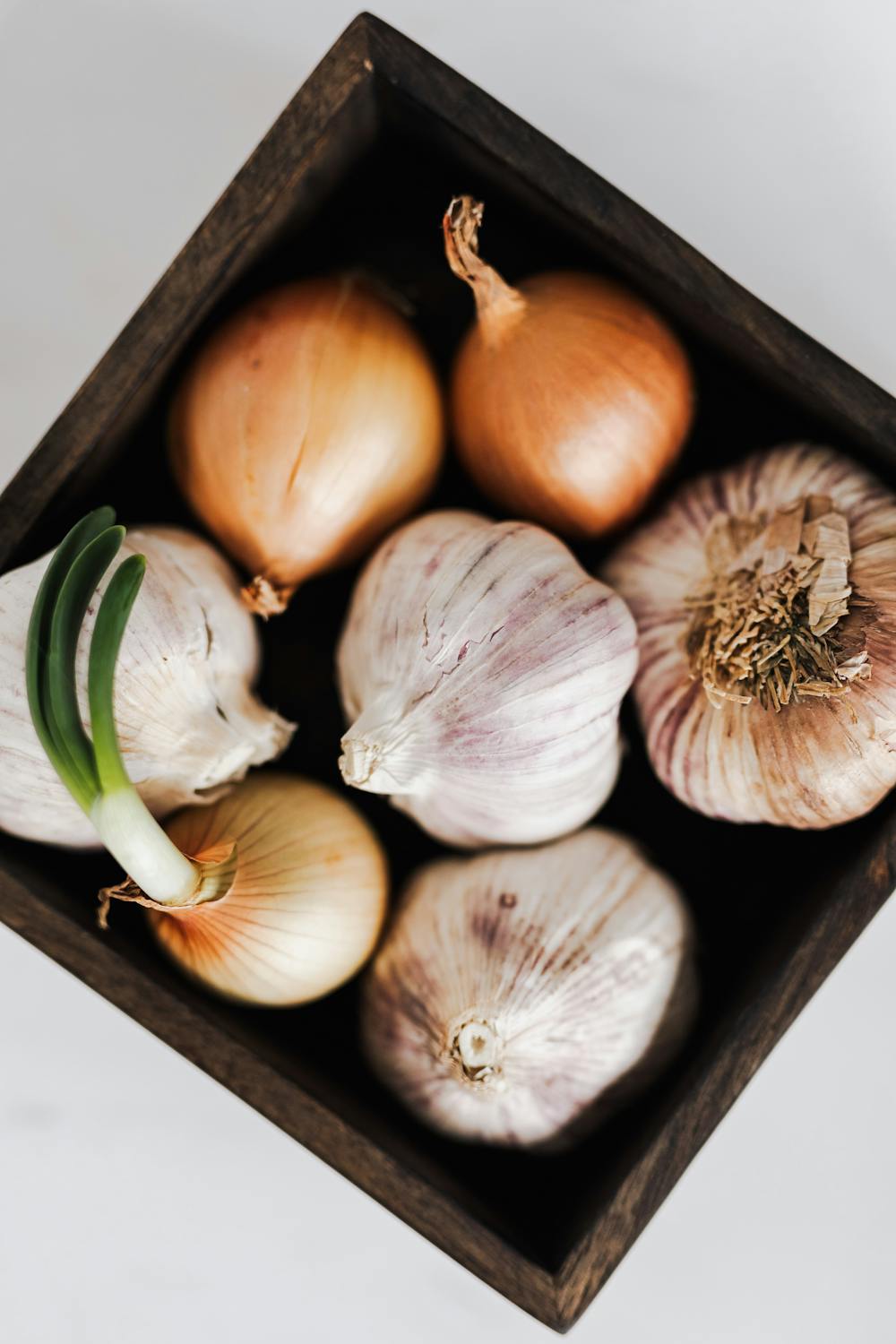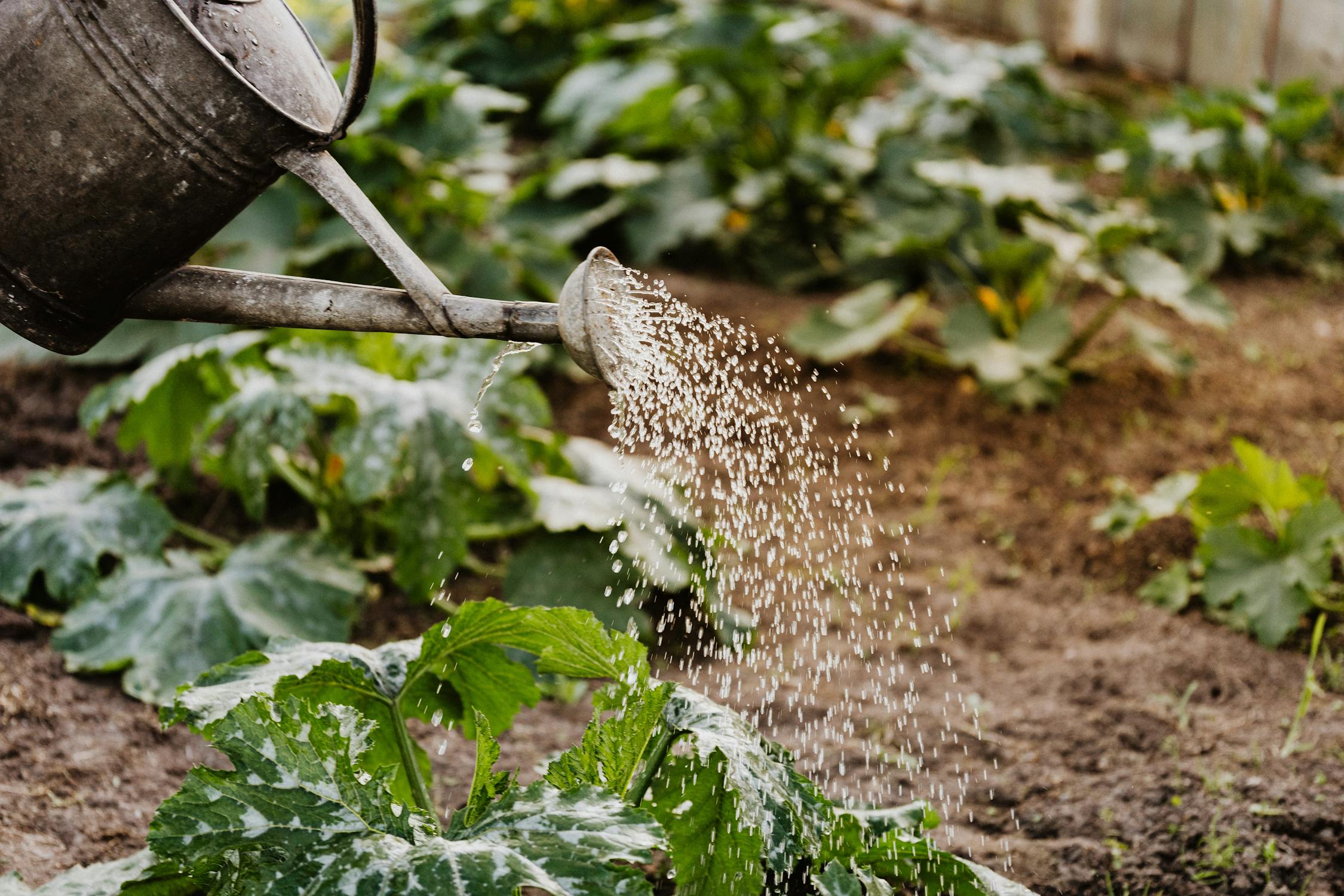How to Grow
Benefits of white onion and how to grow them at home
If you adore the taste and flavor of onions but want them to dial down their pungency, nature has at last granted your wish!
Ask for white onions the next time you visit the vegetable market. They look exactly like regular onions but are whiter in complexion.
You are also aware of the smell that strong, pungent red onions leave on one's breath. You won't have that issue with white onions because of how sweet and mild they taste.
What's more?
Did you know that white onions were used as a powerful ingredient in traditional medicine to stimulate the immune system, fight the plague, prevent cholera, and treat jaundice?
Besides these applications, white onions are easy to grow at home. This blog will explain how to grow white onions at home. We will discuss the following: -
- Facts About White Onions
- Health Benefits Of White Onions
- How To Grow White Onions At Home
- How to take care of White Onions?
Facts About White Onions
- They have a milder and sweeter flavor than other onions, like red or yellow onions.
- They have a crisp texture when raw and become sweeter when cooked.
- They are also known for their versatility in cooking, as they can be eaten raw, sautéed, grilled, or caramelized.
- White onions are a healthy addition to your diet. They are a great source of nutrients, including vitamin C.
- They can be quickly grown in a backyard garden and are available all year round, providing a constant supply of fresh onions.
Health Benefits Of White Onions

White onions are not only a tasty addition to any dish, but they also offer a variety of health benefits that make them a great addition to any diet. Here are some of the vital health benefits of white onions:
Boosts immunity
White onions are rich in vitamin C, which is essential for maintaining a strong immune system. Antioxidants like vitamin C defend the body from dangerous germs and diseases. Eating white onions can help boost your immune system, making it easier for your body to fight off colds and other illnesses.
A healthy heart
High quantities of flavonoids and antioxidants in white onions may help reduce the risk of heart disease. These antioxidants safeguard the heart by avoiding artery plaque development, which can result in heart attacks and strokes. Regular consumption of white onions can assist in maintaining a strong and healthy heart.
Cancer Prevention
The flavonoids in white onions also have anti-cancer properties. These flavonoids inhibit the growth of cancer cells and help to prevent the development of certain types of cancer, such as stomach, colon, and lung cancer.
Weight Loss
White onions are low in calories and high in fiber, making them a great addition to any weight loss diet. They include chromium, which helps to control blood sugar levels and can lessen cravings and stop overeating. Additionally, the fiber in white onions helps keep you feeling full, which can help reduce the overall number of calories you consume daily.
Digestive Health
White onions are also beneficial for digestive health. Prebiotics and the indigestible carbohydrates they contain nourish the beneficial bacteria in your gut. These good bacteria are essential for maintaining a healthy digestive system and preventing conditions such as constipation, diarrhea, and irritable bowel syndrome. Eating white onions can help promote the beneficial bacteria's growth and improve gut health.
Anti-Inflammatory
White onions have anti-inflammatory properties, which can help reduce inflammation throughout the body. People with diseases like asthma, arthritis, and other inflammatory illnesses might benefit significantly from these characteristics.
Cataracts
White onions contain quercetin, a flavonoid that has a protective effect against cataracts. Studies have shown that consuming quercetin-rich foods, such as white onions, can help reduce the risk of developing cataracts and improve overall eye health.
How To Grow White Onions At Home

Imagine the satisfaction of plucking a freshly grown white onion from your garden and adding it to your meals or even using it to make homemade onion dip for your next party!
So, let's roll our sleeves, grab your gardening tools, and start growing our white onion patch together. It's time to level up your onion game!
Method 1: Starting with Sets
- Sets are small onion bulbs that are planted directly into the soil.
- They are easy to find at most garden centres and are usually available in the spring.
- To plant sets, prepare your soil by removing any debris.
- Next, plant the sets about an inch deep and 3 inches apart.
- Water the area well and keep the soil consistently moist.
Method 2: Starting with Seedlings
- Seedlings can be started indoors and then transplanted into the garden. This method takes a bit more work but can also be very rewarding.
- To start seedlings indoors, fill seed trays with seed compost and sprinkle the onion seeds on top.
- Add some compost on top of the seeds, then thoroughly water them.
- Place the trays in a propagator or cover them with a plastic bag and keep them in a warm place until germination.
- Once the seedlings are big enough, transplant them into the garden.
How long does it take to grow
White onions typically take between 90 and 180 days to fully mature and are ready for harvest. The specific time it takes for a white onion to grow can vary depending on factors such as the variety of onions, the growing conditions, and the care provided to the onion during growth.
The best way to know if the onions are ready to harvest is by looking at the size of the bulbs and the top. If the top starts to yellow and fall over, it is a sign that the onion is ready to harvest.
How to take care of White Onions?
Soil
Before planting your onions, you must test your soil's pH level and amend it as necessary.
White onions prefer a soil pH of 6.0 to 6.8. Add lime or sulfur to change the pH of your soil if it is excessively acidic or alkaline. Additionally, ensure that your soil is well-drained, as onions will not grow well in waterlogged soil.
Sunlight

Large onion bulbs' growth depends on adequate daylight hours and optimal light and temperature conditions. Specifically, onions require full sun exposure.
A minimum of 13-16 hours of light are required daily during bulb formation for proper growth.
Location
You must choose a location with enough space for the plants to grow and expand. It must have good air circulation to prevent fungal diseases. It must be a protected area from strong winds.
Temperature
The most favorable temperature range for onion cultivation is between 20°C and 25°C.
Watering

Onions require consistent moisture to grow, so it's essential to keep the soil moist, not waterlogged. Water the onions deeply and regularly, especially during dry spells.
Pruning
Once your onion forms two leaves, you can start to prune. Hold 2 - 2.5 inches from the top and cut. When you do this, you can reduce the weight on the neck of the onion.
Mulching
The benefits of applying mulch to your onion plants include maintaining optimal moisture levels and preventing weeds.
You can use mulch made from natural materials such as grass clippings without herbicides or weed-free straw.
Mulch to a depth of 3-4 inches can help keep the ground moist and inhibit weed growth.
It can save time on maintenance and ensure your plants have adequate access to nutrients.
Fertilizing
Fertilize your onions every 2-3 weeks with a balanced fertilizer. You can use granular or liquid fertilizer, whichever you prefer.
Pest and Disease Control
Pests and illnesses should be watched out for and treated right away. Common pests affecting onions include aphids, onion maggots, and thrips. Common diseases affecting onions include onion white rot, onion downy mildew, and purple blotch. Kindly consult a specialist or ask a local nursery to mitigate the pests and diseases.
Conclusion
So, see, growing white onions is not at all problematic. Make arrangements to grow white onions in your home and enjoy your salads, sandwiches, rolls, etc. As they are loaded with potassium and antioxidants, you can be sure of good health too.
Happy gardening!
FAQs Related to White Onions
Q. Can I plant white onions from store-bought bulbs?
Yes, you can plant white onions from store-bought bulbs, but it's best to select bulbs that are firm, unblemished, and free of mold or soft spots.
Q. What should you do if the pests infest the white onions?
If you notice any signs of infestation, it's best to remove and destroy affected plants to prevent the problem from spreading. Maintaining good sanitation practices, such as removing debris and keeping the beds weed-free, is also essential. Doing this will help to prevent future pests or disease issues.
Q. Can I save the seeds from my white onions for next year's planting?
You can save the seeds from your white onions for next year's planting. The process is called seed saving.
Q. How can I store white onions to keep them fresh for a long time?
You can store white onions in a cool, dry, and dark place with good air circulation.
Q. Are there any precautions or warnings when consuming white onions?
White onions are generally considered safe to consume. However, like with any food, some people may be allergic to white onions.





